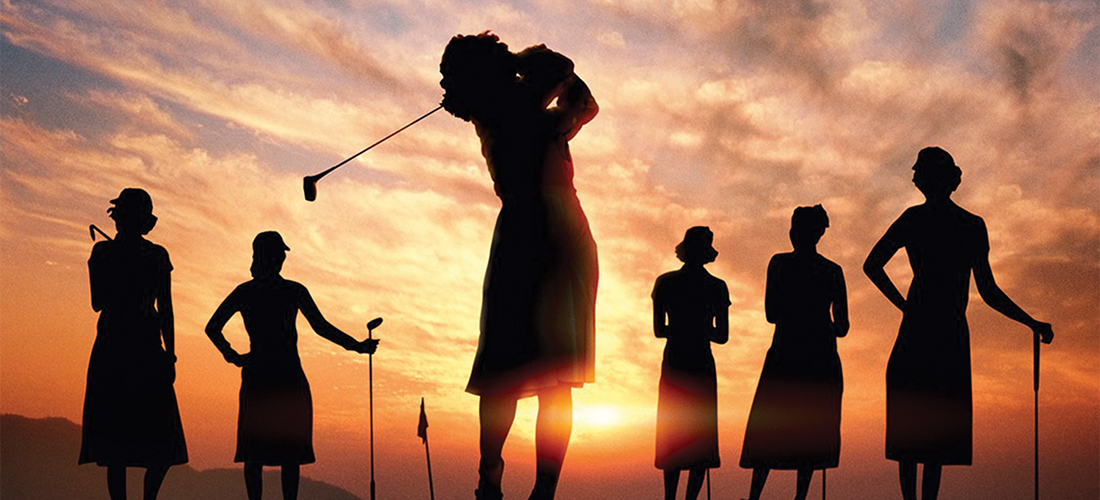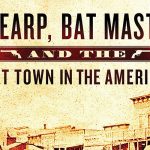
The Founders highlights a new Sandhills festival
By Jim Moriarty
It may not be the seismic shift that occurred when talkies came to town in 1929, but when the curtain goes up on Tar Heel Shorties, a one-day film festival on July 8 at the Sunrise Theater, it will have the same kind of ground floor appeal. The festival is being curated by Dan Brawley, the director of the enormously successful Cucalorus Film Festival now in its 23rd year in Wilmington.
Cucalorus already has one satellite festival, Surfalorus, in its sixth season in Dare County, and Brawley, also the president of the international organization Film Festival Alliance, hopes to find the same kind of traction in the Sandhills he found in the surf. “There are so many talented young filmmakers in North Carolina,” says Brawley. “If we develop this properly over the next several years, we could be drawing students from every university. The barriers to making really high quality films have all vanished. The history of Cucalorus is all about being deeply connected to local creators and then bringing people in from the outside and making connections. That’s what we’re really trying to do, cultivate creative talent, make connections with other creative talent and then, it’s sort of off to the races.”
Tar Heel Shorties will begin at 5 p.m. with a “shorts block.” There will be a meet-and-greet party from 6 to 7:30 p.m. followed by a full-length feature, the recently released film about the 13 founding members of the Ladies Professional Golf Association, titled The Founders. The producer and director of The Founders, Charlene Fisk, will be one of the artists in attendance.
Brawley’s selection of films, beginning with The Founders, is tailored to the community. He spun through 690 shorts in the Cucalorus database to winnow the selection down to between eight and 11. One of them will be What It Was, Was Football, by Duncan Brantley, a short from Cucalorus’ third season incorporating the famous Andy Griffith routine. “It’s funny, funny, funny stuff,” says Brawley. “An essential part of the film festival experience is going to see a shorts block. For one, you see the directors who will be famous in 10 years. You also see the art form developing and evolving in front of your eyes. You’ll see something clever or innovative that’s really groundbreaking in a short film, then four years later it’s in a feature film. The short films this year are either by kids or about kids, a very family-oriented block.”
Bringing the festival to the Sandhills is something of a homecoming for Brawley. He has an uncle in Southern Pines, but more than that, the ’96 Duke University graduate spent a couple of summers boarding at the Pine Crest Inn. Slight of build with flyaway red hair and a beard and mustache that could slip undetected into any artists’ co-op, he was the No. 2 player on the golf team behind longtime PGA Tour veteran Joe Ogilvie. “I’d wake up every morning and I’d walk over to the country club and practice with my golf coach, Eric Alpenfels,” says Brawley, of his pine Crest days. “I’d head back there at night. I’d have dinner in the dining room. I knew all the waitresses. I’d play solitaire in the corner of the lobby every night.” And, as a bonus, he made a small fortune hustling tourists chipping golf balls into the fireplace.
Obviously, The Founders is a film with deep roots in the Sandhills. While the LPGA doesn’t officially acknowledge Peggy Kirk Bell as being among the original 13, the founders themselves all viewed her as No. 14. Mrs. Bell appears in a lot of the movie’s archival footage. “There were two or three things that we had to lose in the film that we labored over,” says Fisk. “No. 1 was Peggy Kirk Bell. The remaining founders all have that same respect for her and include her in that group. She’s so important. After Karrie Webb saw the film, the one thing she brought up was Peggy.”
At the time of the film’s making there were four living founders and, naturally, the movie focuses on them, with Babe Zaharias and Patty Berg as stars in absentia. “The first person I called was Louise Suggs,” says Fisk of the project’s genesis. “She said, ‘Who are you and why are you making this film?’ She just read me the riot act, and when I got off the phone I kind of was in tears. I can’t do this. They obviously don’t want to do it. She was very protective of the story. I called Marilynn Smith next and she’s Miss Personality and she had the exact opposite reaction. ‘Oh, my gosh, honey, we’ve been wanting to tell the story. I can’t believe you want to talk about it.’ That was the beginning. Five years later, we’re releasing it.”
While it s form is documentary, with all the reality that implies in the interviews, the movie captures the sheer determination of a group of young women and the drama of the all-too-human jealousies. The archival footage alone is a treasure for golf fans, but the storytelling lends the narrative its universal appeal.
“To get all this archival content was the most impossible task,” says Fisk. There were five women putting the film together working out of Fisk’s Atlanta loft. They started with the USGA, went through the families of the founders, then on to the families of other players. “We were getting boxes of stuff people had never even looked at. Boxed up in garages and basements. We went and got old vintage projectors. It was like Christmas every time we’d get a box. That opening shot of that swinging golfer, that was a film reel that Betty Hicks’ family sent us. The footage of Babe sticking her face in the camera is from Bonnie Bell. It was kind of crazy that these 30-year-old women could be so elated by footage of these women from the ’50s.”
Getting things off the ground, whether it be Tar Heel Shorties or The Founders, is never easy. “We would have no money,” Fisk recalls. “I would be super frustrated. We were just hitting wall after wall after wall. One day one of the writers, Dana Lee, said, ‘You know what, we’re just like the founders. Nobody helped them. They had to keep doing it and doing it and doing it. They did it because they believed in it. Don’t forget. That’s why you’re doing it.’”
Now, it’s at a theater near you. PS
Jim Moriarty is senior editor of PineStraw and can be reached at jjmpinestraw@gmail.com.
Saturday, July 8
Tar Heel Shorties
Film Festival
5 p.m. – Shorts Block:
Swimlapse / Eddie Schmit
In the shadow of a chilling accident, a young lifeguard struggles to return to work while teaching a reluctant girl to swim.
Sugar / Kristin Pearson
An animated collage of the futility of a good night’s sleep.
Courtesy Call / Jim Haverkamp
A free agent for decency tries to reach out and touch someone – usually, someone who doesn’t like to be touched.
Ignite / Christopher Zaluski
Ron Killian has big art dreams. On the brink of age 50, he’s worried that time may be running out. As a way to reinvent himself, he has created a new art medium using fire. He now spends his days inside his Asheville, N.C., bungalow burning canvas, paper and paint, creating unique pieces that the world may never see.
What it Was, Was Football / Duncan Brantley
A naïve country preacher accidentally finds himself at a football game. He has no idea what he is seeing, but describes it as best he can. A visual recreation of Andy Griffith’s classic radio comedy routine.
Bernerd / Marshall Johnson
Bernerd, the controlled burn spokesman, is here to teach us about fire safety. Unfortunately he’s lost his way and now his method mostly involves a trail of lit cigarettes and smoldering ruins. Come with Bernerd as he teaches one family the importance of random fire.
The Private Life of a Cat /Iris Monahan
In 1947, Alexander Hammid (the cinematographer husband of the famous experimental filmmaker Maya Deron) made a silent documentary chronicling his cat having kittens. Fifty years later, Iris Monahan and her dad Dave added cat voices, funky music, and a few laughs.
Acito on the Mound / Shawn Lewallen
The spirit of baseball lives on long after players leave the field. A visit to the pitching mound after saying goodbye to a friend brings back memories of a rough game.
6 p.m. – Meet & Greet with Attending Filmakers
7:30 P.M. – Feature Film
The Founders
They were not supposed to be athletes. They were not supposed to get paid to play. They were not supposed to call the shots. But in 1950, 13 amateur women golfers battled society, finances and sometimes even each other to create the Ladies Professional Golf Association.





